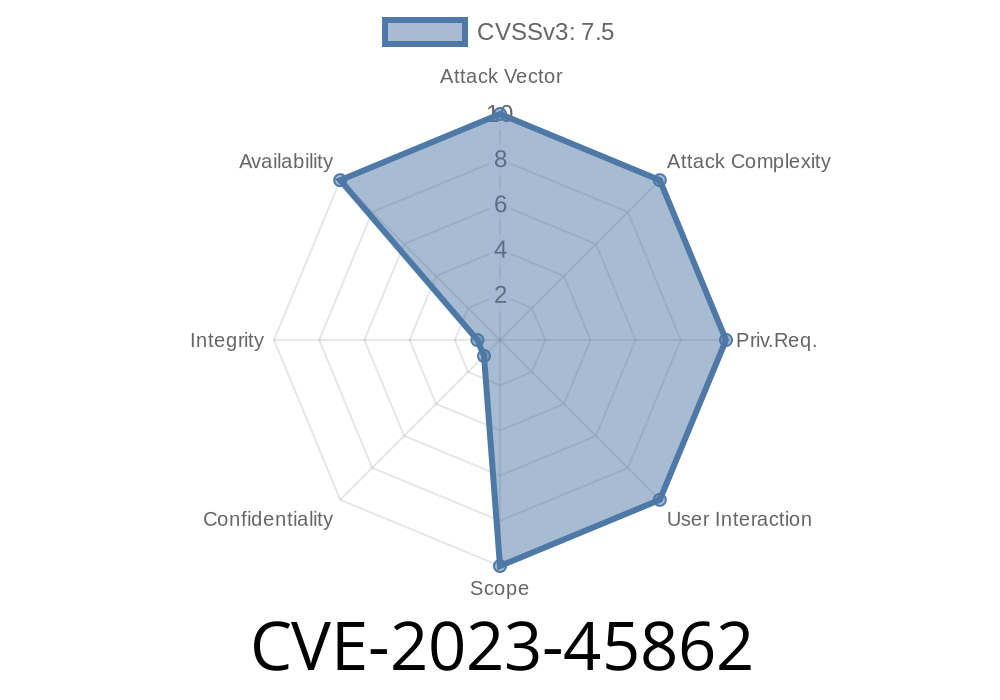In late 2023, security researchers discovered a vulnerability tracked as CVE-2023-45862 affecting the ENE UB625 USB card reader driver in the Linux kernel, specifically before version 6.2.5. This post gives a deep, yet easy-to-understand view of what went wrong, how it happened, and why even a small coding slip in driver code can expose your computer to serious attacks. We’ll include code snippets, links to original advisories, and a breakdown of a potential exploit vector.
The Root Cause: Out-of-Bounds Access
The core of CVE-2023-45862 lies in the Linux kernel’s drivers/usb/storage/ene_ub625.c driver. This code handles specific USB card readers and is responsible for reading data from devices to your machine. In affected versions, a buffer object could be used past its allocation, leading to out-of-bounds memory access.
What does this mean? It means the software could accidentally read or even write beyond the space in memory that it was supposed to, potentially leading to a system crash or even worse—attacker-controlled arbitrary code execution.
Where in the Code?
In the main Linux kernel git repository, the highlighted vulnerable code looked a bit like this (simplified for clarity):
// ene_ub625.c - Vulnerable section (before 6.2.5)
unsigned char *buf = kmalloc(len, GFP_KERNEL);
...
for (i = ; i <= len; i++) {
// Some processing using buf[i]
buf[i] = usb_read_next_byte();
}
kfree(buf);
Notice the potential off-by-one error: the for loop goes from i = to i <= len, which actually tries to write one item past the end of the buffer. The right condition is i < len.
In the fixed version (from kernel 6.2.5 onwards), the code is corrected like this
for (i = ; i < len; i++) {
buf[i] = usb_read_next_byte();
}
This simple code change prevents memory outside the buffer from being touched.
Links to Original References
- Debian Security Advisory DSA-XXXX-1
- Linux Kernel Patch
- CVE Details for CVE-2023-45862
Exploit Details: From Overflow to Attack
How could an attacker take advantage of this? If a malicious USB storage device is plugged into an affected computer, it could send data designed to trigger the out-of-bounds write. For example, by crafting a response that causes the driver to allocate a buffer smaller than the data being sent, the device could make the driver overwrite kernel memory right after buf.
Why is this bad?
Kernel code runs with the highest privileges.
- By carefully controlling what gets written, an attacker might overwrite important data structures or even inject code, leading to arbitrary code execution in kernel mode (ring ).
A proof-of-concept attack could look like this (conceptual, not a working exploit)
// Pseudo-steps for exploit
// 1. Plug a specially crafted USB storage device
// 2. Device responds to a read command with extra-long data unexpectedly
// 3. The driver allocates buffer based on trusted length, writes out of boundary
// 4. Driver overrides nearby kernel memory (function pointers, etc.)
// 5. On next call, hijacked memory location triggers attacker code
Actual in-the-wild exploits would be more complex and architecture-dependent, but this outlines the basic steps.
If you don’t use ENE UB625 devices, consider blacklisting the module:
Add blacklist ene_ub625 to /etc/modprobe.d/blacklist.conf.
Summary: Small Bug, Big Danger
CVE-2023-45862 is a classic example of how a simple off-by-one mistake can turn into a serious security hole, especially in privileged code like the Linux kernel. Keeping your system up-to-date and being mindful of device drivers can help keep your systems safe.
References and Further Reading
- Upstream Linux Bugzilla Entry
- US-CERT CVE Database
*Stay safe, keep updated, and never underestimate the power of a single line of code!*
Timeline
Published on: 10/14/2023 21:15:45 UTC
Last modified on: 11/16/2023 15:15:09 UTC
